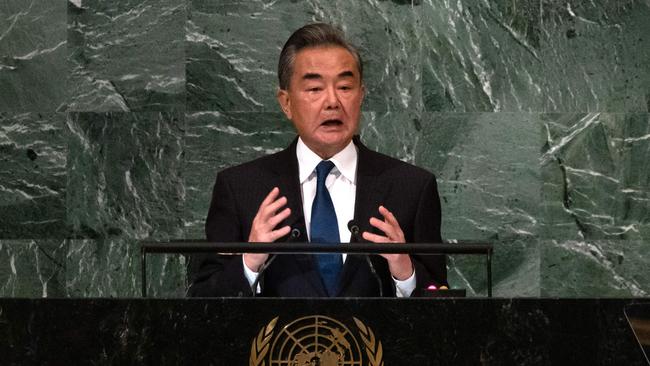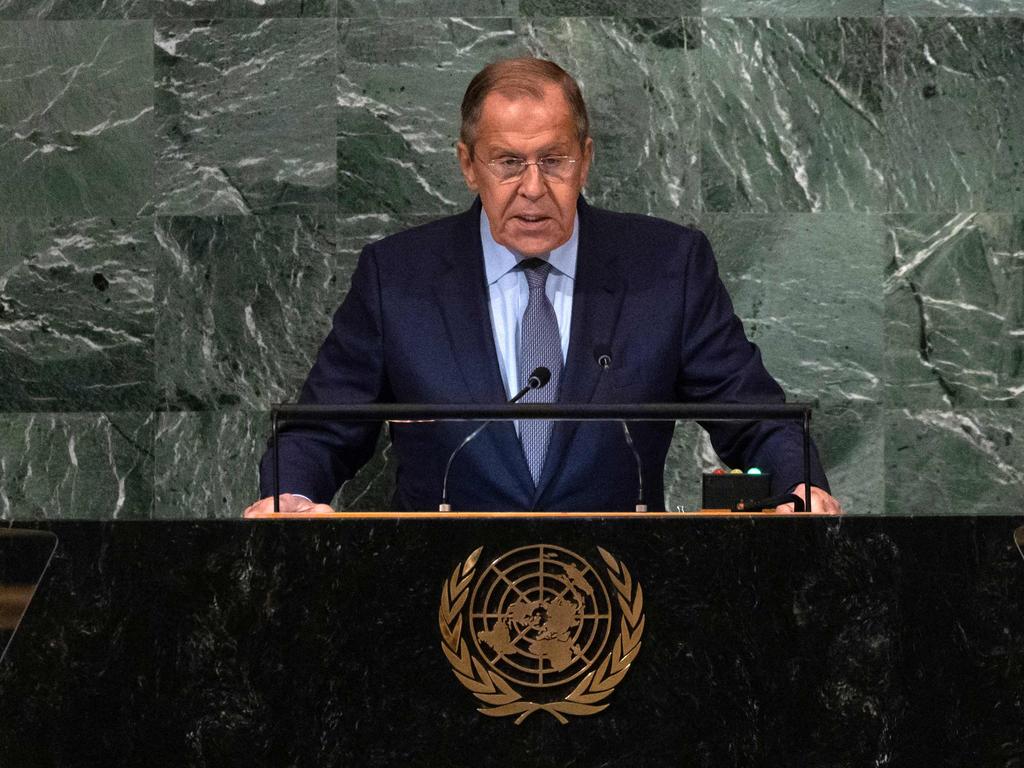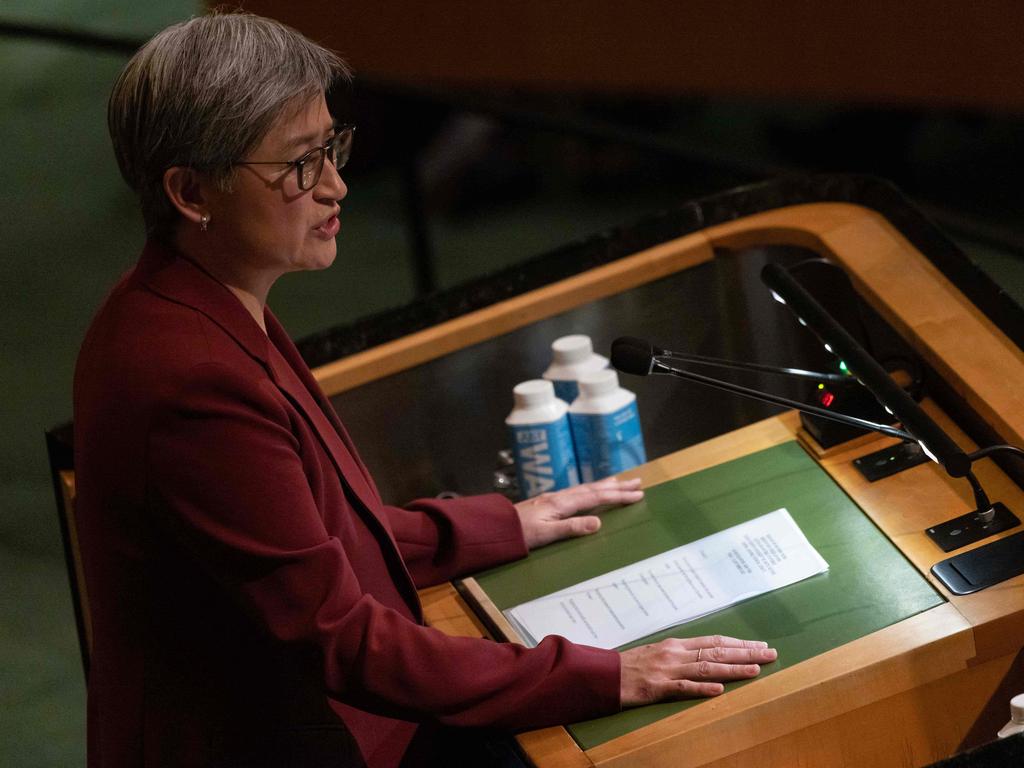China stresses its Taiwan stance in United Nations meetings
Unsettled status of the island, which Beijing claims as its sovereign territory, is at centre of deteriorating relations with the US.

China’s foreign minister promoted one issue above all others in a flurry of diplomatic meetings at the UN last week: Beijing’s sovereignty over Taiwan.
Addressing the UN on Saturday on behalf of President Xi Jinping, Chinese Foreign Minister Wang Yi described Taiwan as China’s sovereign territory since ancient times and vowed resolute action to forestall separatist activity.
“Only when China is completely reunified can there be enduring peace across the Taiwan Strait,” Mr Wang told the General Assembly.
“Any scheme to interfere in China’s international affairs is bound to meet a strong opposition of all Chinese, and any move to obstruct China’s reunification is bound to be crushed by the wheels of history.”
The unsettled status of Taiwan — a democratically governed island claimed by China but not controlled by it — is increasingly at the centre of a deteriorating US-China relationship. While Mr Wang didn’t directly call out recent US activity in his UN address, he said publicly during the week that Taiwan holds the key to future ties between Washington and Beijing.
President Joe Biden last week told the UN that the American position on Taiwan hasn’t changed and that Washington doesn’t want a Cold War with China. But he said, the US will be “unabashed in promoting our vision of a free, open, secure, and prosperous world and what we have to offer communities of nations”.
The US subscribes to a “One China” policy but doesn’t take a position on unification. Beijing says US arms sales to Taiwan and rhetorical support for the island’s leadership, including statements from Mr Biden that the US military would under some circumstances defend Taiwan, undermine Washington’s claims that its policy hasn’t changed.
While the lengthiest section of his roughly 20-minute UN speech was related to Taiwan, Mr Wang also said Beijing favours a global order based on multipolarity and he briefly touched on development and security initiatives promoted by Mr Xi.
On Ukraine, Mr Wang told UN delegates, the “most pressing priority is to facilitate talks for peace” but that a final solution will need to address “the legitimate security concerns of all parties.” Chinese Foreign Ministry summaries of Mr Wang’s meetings in New York separately with Russian Foreign Minister Sergei Lavrov and Ukrainian Foreign Minister Dmytro Kuleba made similar points — and quoted both the Russian and Ukraine officials as reiterating their commitment to a One China policy.
In his speech Saturday, Mr Wang said China is sincere in desiring a peaceful unification with Taiwan but said it “must combat Taiwan independence separatist activities with the firmest resolve.” After a congressional delegation led by House Speaker Nancy Pelosi visited Taiwan in August, China’s military flew missiles over the island and practised a naval blockade around it while claiming such visits encourage politicians on the island to pursue independence.
Mr Wang emphasised that point on Friday in a bilateral meeting with US Secretary of State Antony Blinken, during which he cited “recent wrongful moves by the US” regarding Taiwan that he said reflect a current “China policy guided by containment and suppression,” according to Xinhua News Agency.
Mr Blinken emphasised a US commitment to maintaining peace and stability across the Taiwan Strait, consistent with a longstanding One China policy, according to a US summary of their meeting.
“I think it’s fair to say this was a primary topic of conversation today, ” said a senior State Department official.
The US-China relationship represents a clash of ideologies that pits the world’s two most powerful militaries and biggest economies against each other, creating discomfort for many other nations.
In his UN address on Wednesday, Mr. Biden said the different international strategies of the US and China are part of “the contest between democracy and autocracy.”
A day later, China’s Mr Wang rejected the democracy-autocracy formulation as a “false narrative” and said US “threat inflation” about China is merely a reflection of anxiety in Washington due to waning confidence in its own system.
The Wall Street Journal





To join the conversation, please log in. Don't have an account? Register
Join the conversation, you are commenting as Logout